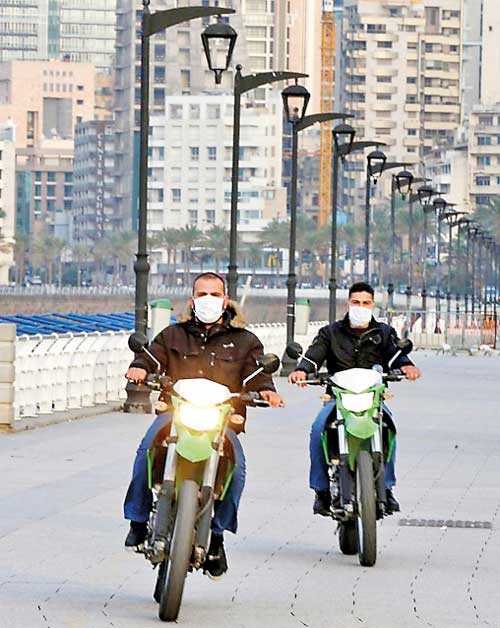Wednesday Feb 25, 2026
Wednesday Feb 25, 2026
Tuesday, 17 March 2020 00:01 - - {{hitsCtrl.values.hits}}
BEIRUT (Reuters): Lebanon declared a medical state of emergency on Sunday, announcing a sweeping shutdown that included the closure of its airport and most public institutions and  private companies as it looks to rein in coronavirus.
private companies as it looks to rein in coronavirus.
Information Minister Manal Abdel Samad said Lebanon’s borders, ports, and airport would shut from March 18-29 and Lebanese were obliged to remain at home except for matters of “extreme necessity”.
Addressing a news conference after an emergency cabinet session to agree the measures, Prime Minister Hassan Diab said the steps would “no doubt” impact an already crisis-hit economy, but “people’s lives and health are more precious”.
The government decisions included the suspension of work at nearly all private companies, granting narrow exceptions for food industries and services.
“Each of us is called upon to continue his work, from home, in the way he sees appropriate,” President Aoun said in a televised address earlier on Sunday.
Lebanon, which is already hit by a deep financial crisis, said on Sunday the total number of coronavirus cases had reached 99. Three people have so far died.
Health officials have warned that any wider outbreak could severely strain Lebanon’s strapped medical resources after a months-long dollar shortage that has depleted supplies at hospitals, putting its population at high risk.
The new measures will also shut Lebanon’s banks until 29 March. On Friday, the central bank asked commercial banks that have imposed strict capital controls to prioritise hard currency for the import of corona-related supplies.
In a bid to reduce potential exposure, security forces were dispatched to Beirut’s seaside corniche on Sunday to disperse crowds who had come to enjoy one of the city’s few public spaces.
“We heard they are going to issue a curfew so we said let’s take advantage of the last Sunday and the sea,” said Mohamed Sabah, a film producer.
Other countries in the region have taken similar measures to protect their populations and support their economies.
Central banks in Egypt and Saudi Arabia said they were ready to intervene if necessary, as Gulf Arab states tightened travel and social curbs to contain the infection’s spread. Morocco’s King Mohammed VI ordered the creation of a 10 billion dirham ($1 billion) fund to upgrade health infrastructure and help vulnerable economic sectors.